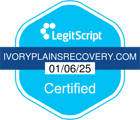Some people seem to adapt easily to just about every situation, while others find it more challenging to accept change or learn new things. Are these inherent, inflexible traits, or can we build upon what we know and how we think? Researchers believe that anyone can develop a growth mindset, which may in turn improve many aspects of their lives.
What’s a Growth Mindset?
There are a lot of buzzwords relating to self-help and mental and emotional wellness. However the theory of growth mindset vs. fixed mindset has been around for a while, and scientists believe people gain a lot of benefit knowing how to utilize it to their advantage.
Notable psychologist and Stanford professor Carol Dweck first pioneered the concept in the early 1970s. Her initial research in education revealed that some students believe effort and practice improve their capabilities, intelligence, and talent, and they look upon new challenges as opportunities. This “growth mindset” contributes to achievement, motivation, personal development, and resilience. Other students thought that if they’re not good at something, they’ll never be, because intelligence and other qualities are unchangeable. They resist unexpected challenges because they prefer to stay in their comfort zone. Dweck classified these characteristics as a fixed mindset.
Here are other examples of the differences between fixed vs. growth mindsets, which we feature verbatim from Entrepreneur:
- Negative self-talk and defensiveness vs. constructive self-talk and openness to feedback.
- Jealousy of or discouragement over others’ accomplishments vs. inspiration and motivation to learn from others.
- Belief in innate abilities vs. embracing the potential for development through effort and learning.
Over the years, Dweck’s theory has been applied in business and leadership, considered a viable method to overcome the effects of poverty on academic achievement, integrated into the arts and athletics, and utilized in behavioral psychology treatments.
What Having a Growth Mindset Teaches Us
You’re a unique individual with personality traits that reflect your behaviors, emotions, and thoughts. Some of these characteristics are innate—meaning, they’re often part of your core self. However, with a growth mindset, you also have the capacity to evolve, maintaining certain strengths while building upon other areas. You recognize the value of improvement through effort, and believe the eventual outcome is worth the journey.
In her book, Mindset: Changing the Way You Think to Fulfill Your Potential, Dweck explores the concept of a growth mindset as a way to fulfill potential. For example, ask yourself these questions:
- “What did I learn today?”
- “What mistake did I make that taught me something?”
- “What did I try hard at today?”
Dweck’s theory states that “the passion for stretching yourself and sticking to it even (or especially) when it’s not going well, is the hallmark of a growth mindset. This is the mindset that allows people to thrive during some of the most challenging times in their lives.”
Shifting From a Fixed to Growth Mindset
We’re all going to have certain fixed qualities about our belief systems and abilities sometimes. They’re often ingrained in us from our upbringing and other influences. But as you may have discovered during behavioral health treatment, you have tremendous capacity to heal from the past and forge a new direction based on your current intentions.
So how can you shift out of a fixed mindset into more of a growth mindset? Here are a few suggestions.
- Acknowledge negativity and adjust to more solution-oriented thinking
It’s only natural to initially feel threatened by something or someone, or take criticism too personally. Allow yourself to recognize certain triggers rooted in a fixed mindset, and then adjust by asking someone about their methods for achievement or considering the source of the criticism and analyze the input as a learning opportunity. - Give yourself some grace
Let’s say your therapist recommended new coping techniques for managing your mental or emotional health. In a fixed mindset, there could be numerous reasons to resist these different methods, especially if you have apprehensions that they might not work. But with a growth mindset, you can accept the process a little at a time, invest your best effort, and stay curious as to the outcome. - Advance from “not ever” to “not yet”
One of Dweck’s top recommendations is to reframe failure as a learning opportunity. You haven’t mastered everything…not yet, anyway. So if you struggle a bit, remind yourself of that, and stay focused on the journey. And, if you need help with addiction or a substance use disorder, be sure to reach out to the caring individuals at Ivory Plains Recovery Center.








